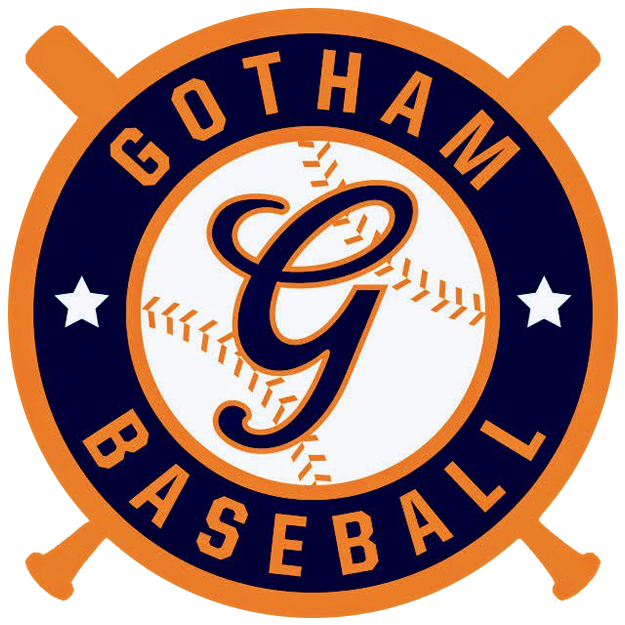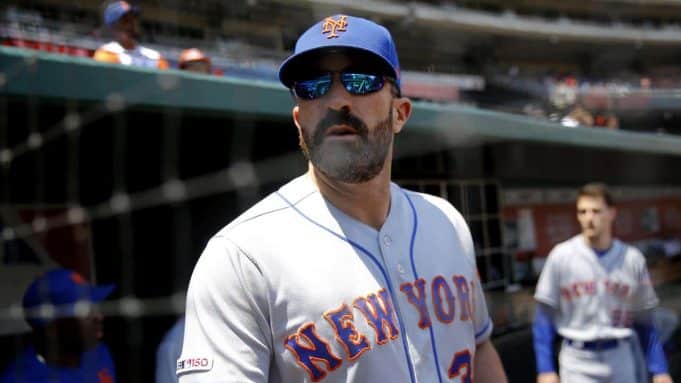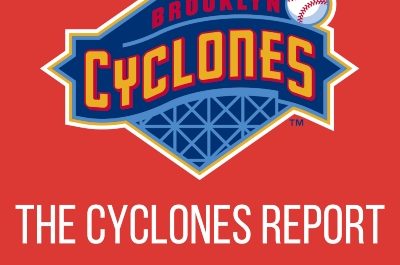Do you remember Ray Handley? In case you don’t, he was the head coach of the New York (Football) Giants from 1991-1992. If you do remember him, then it’s likely that the first vision that goes through your mind is from 11/25/92, when he abandoned a press conference early because he took issue with what was actually a reasonable line of questioning. Handley was not the first coach, nor the last, to let his frustration literally take him out of the room. However, he was a coach whose readiness for his role had already come into question, and his inability to maintain composure in what could have been a relatively normal exchange, pretty much wiped out any hopes that anyone had for him. On Sunday, after a season and a half of frustrating questions, and confusing answers, Mets manager Mickey Callaway cracked, and for some it seemed all too familiar.
The quick version of the story is this: The Mets bullpen has become notorious for blowing leads and losing games late. It hasn’t mattered much whom they’ve put on the mound in these situations, the results have consistently ranged somewhere from disappointing to tragic. The two best Mets relievers this season have been Seth Lugo and Edwin Diaz. Neither has been perfect, but each has been well above the remarkably low bar that has been set.
Diaz is the Mets closer, and when he came to the team this past offseason, he was presented as someone who would called upon in key situations, not just save situations. Earlier in the year, Diaz was not used in a key situation, and Callaway had some post-game explaining to do. He announced that Diaz would not be called upon to get more than a 3-out save this year. This was news to many people, including Diaz himself. General Manager Brodie Van Wagenen backed up Callaway’s edict, and said that this approach came from the top. This pulled some of the heat off Callaway, and eventually the story blew over. In fact, Diaz did start pitching in non-save situations and other key moments, disproving Callaway’s comments somewhat, and nobody really seemed to care.
Yesterday, after a well-pitched game from starter Jacob deGrom, Callaway brought Lugo in to pitch with a 3-2 lead in the 7th inning. It was not an easy 7th inning, but the Mets escaped unscathed. The 8th inning didn’t start off any better, but a quick glance at the bullpen showed that Diaz was not warming up. In what was a frustratingly predictable chain of events, Lugo eventually blew the lead on a 3-run home run by Cubs infielder Javy Baez, and the Mets had to settle for a split of the 4-game series with the Cubs.
Had the story ended there, I’m not even sure I would have written about this game. The pattern is so familiar, at this point, that there’s really not much to say about it. Then, after the game, the real excitement went down.
Callaway got frustrated with a reporter who, like most other people who follow the Mets, was having trouble understanding why Diaz wasn’t used. His questions persisted and Callaway blew up at him. This was followed by Mets pitcher, Jason Vargas, confronting the reporter and threatening to knock him out. Fortunately he was separated from the reporter and never followed through on his threat. Not only would that have been a memorable low-point for this team, chances are he would have hurt his hand on the punch, and another Mets player would have strained a ligament trying to hold him back.
Before all of this went down though, there was something else involving Callaway that was upsetting. In describing Lugo’s performance, Callaway told reporters, “I thought he had good stuff…just didn’t execute one pitch.” Meanwhile, at about the same time, Lugo told some reporters, “I wasn’t executing any pitch. I don’t think anything was there. I threw probably two or three pitches I was happy with…The stuff just wasn’t there today.”
This is a problem. Anyone who was watching the game could see that Lugo was struggling, including Lugo himself. For Callaway to try to suggest that Lugo had good stuff means that he either did an awful job of evaluating the situation, or he’s lying and thinking the NY media and the fans will buy it. He should know better by now. That’s not going to fly around here when the team is so disappointing. And then, to top it off by mouthing off to a reporter, this was something of a Ray Handley moment for Callaway.
Now, it’s possible that the team will use this as something to rally around. At times this year, it’s seemed that the Mets have played without much drive, determination, or even desire. If this experience lights a fire under them, then it could prove to be an unusual turning point.
That didn’t happen for Ray Handley. He missed the playoffs in 1991, and again in 1992, he lost support from fans and media alike, and was fired after two seasons as head coach. Mickey Callaway is about a year-and-a-half through his Mets tenure. He’s going to have to turn things around, on and off the field, if he doesn’t want to suffer a similar fate.


